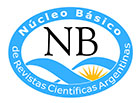Community embodiment of memory: un-doing trauma
Abstract
This article examines the way in which the community as a body reenacts past events in the bodies of their members displayed on the scene and reflects on its impact on social, artistic, and political relations. It analyzes the forms and functions that this practice gives to the body. It thinks about how it triggers social processes of memory that intervene and revive the past so as to provide the members and their environment with a new historical consciousness. It studies the way in which it releases the bodies from the postures adopted due to the absorption of the civilizing pattern that has formed them in their gestures, modes and languages, reinforcing social positions and limiting their political possibilities. This corporal memory, by becoming aware and modifying itself, gives the subjects the possibility of adopting unallocated functions and roles, thus expanding their role as social agents.
Downloads
References
Castillo, Christian Carlos Hernán (2011). “El PRT-La Verdad entre los trabajadores de la carne de Berisso: La agrupación ‘El Activista de la Carne’ y la Lista Gris (1967-1972)”. En: Cuestiones de Sociología, nro. 7: pp. 247-274. Disponible en http://www.memoria.fahce.unlp.edu.ar/art_revistas/pr.5529/pr.5529.pdf. Fecha de la última consulta: enero de 2015.
Dijkstra, Katinka, Kaschak, Michael P., y Zwaan, Rolf A. (2005). “Body posture facilitates retrieval of autobiographical memories”. En: Congnition, nro. 102: pp.139-149. Disponible en: www.sciencedirect.com. Fecha de la última consulta: enero de 2015.
Fernández, Ana María (2006). Política y subjetividad. Buenos Aires: Biblos.
Fernández, Clarisa (2012). ¿Transformar o conservar?: una puja por pertenecer. Recuerdos, espejos y lugares en el teatro comunitario argentino contemporáneo. Tesis de maestría, Universidad de La Plata, mimeo.
Fuchs, Thomas. (2012). “The phenomenology of body memory”. In: Koch, S., Fuchs, T., Summa, M., Müller, C. (eds.); Body Memory, Metaphor and Movement. Amsterdam: John Benjamins. Pp. 9-22.
Fuchs, Thomas (2016). “Collective Body Memory”. En: Durt, C., Fuchs, T. y Tewes, C. (eds.); Enacting Culture. Embodiment, Interaction and the Development of Human Culture. Cambridge/Mass: MIT Press (en prensa).
Guattari, Félix y Rolnki, Suely (2007). Micropolítica: Cartografias do desejo. São Paulo: Vozes.
Newman, Fred. (1999). Performing Pshycology: A Posmodern Culture of the Mind. London: Routledge.
Proaño Gómez, Lola (2013). Teatro y estética comunitaria. Miradas desde la filosofía y la política. Buenos Aires: Biblos.
Rolnik, Suely (2007). Cartografia Sentimental: Transformações contemporâneas do desejo. Porto Alegre: Sulina. Disponible en http://eipcp.net/transversal/0507/rolnik/en/print. Fecha de la última consulta: enero de 2015.
Stern, Daniel (1985). The Interpersonal World Of The Infant: A View from Psychoanalysis and Developmental Psychology. New York: Basic Books.
Virno, Paolo (2003). El recuerdo del presente. Ensayo sobre el tiempo histórico. Buenos Aires: Paidós.
Zanzio, Jorge (2010). Contra viento y olvido. Documental. Producción Plisando Pliegos. La Plata, Argentina.
Downloads
Published
How to Cite
Issue
Section
License

This work is licensed under a Creative Commons Attribution-NonCommercial-ShareAlike 4.0 International License.
La revista Clepsidra. Revista Interdisciplinaria de Estudios sobre Memoria es una publicación en Acceso Abierto y no cobra dinero a los autores y autoras por publicar (APC) como tampoco a los lectores por acceder al contenido publicado. En este marco, la publicación utiliza las licencias Creative Commons, específicamente Atribución-NoComercial-CompartirIgual 4.0 Internacional (CC BY-NC-SA 4.0). Por esta razón, cuando un manuscrito es aprobado para la publicación, los autores y autoras retienen los derechos de autor sobre su trabajo, pero autorizan a copiar, distribuir, hacer obras derivadas del trabajo original, a condición de atribuir siempre la autoría del trabajo en la forma especificada por el autor o licenciante de la obra. Esta licencia no permite, sin embargo, utilizar la obra ni sus posibles trabajos derivados con fines comerciales.
Por su parte los autores y autoras conservan los derechos sobre el trabajo y garantizan el carácter de inédito y original. También, los autores y autoras ceden a Clepsidra… el derecho, no exclusivo, de publicarlo de manera electrónica. Por lo tanto, los autores y autoras podrán disponer de las versiones finales y difundirlas en repositorios institucionales, temáticos, páginas web personales o cualquier otro uso pertinente, siempre que se mencione la fuente original de publicación.













